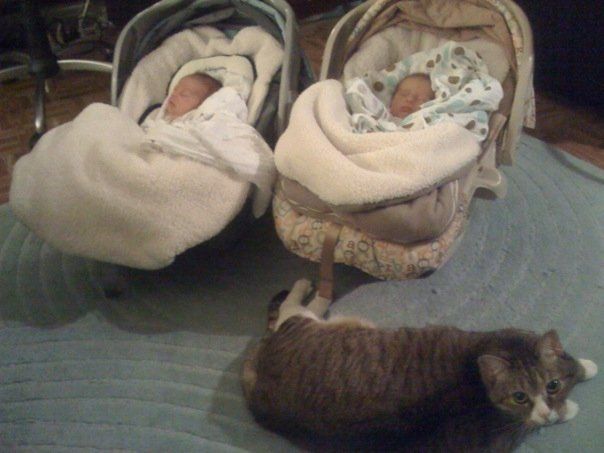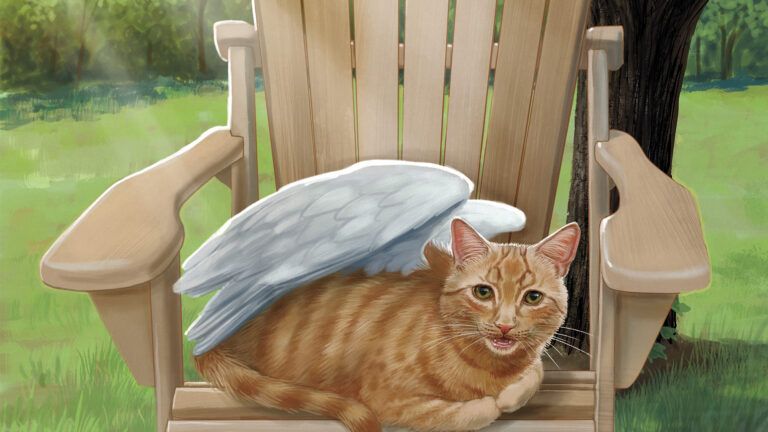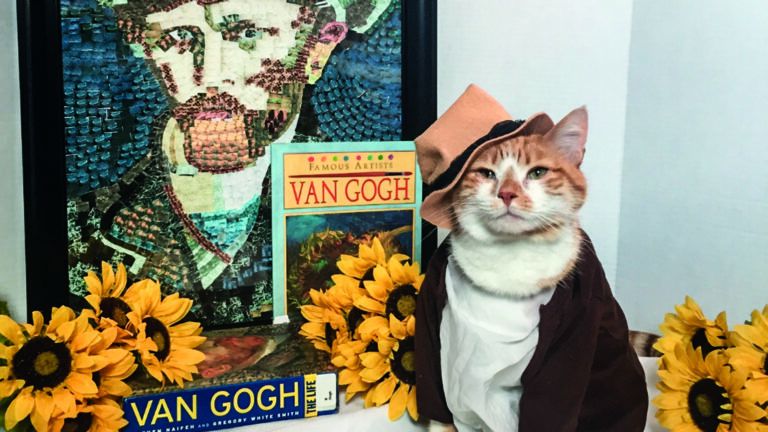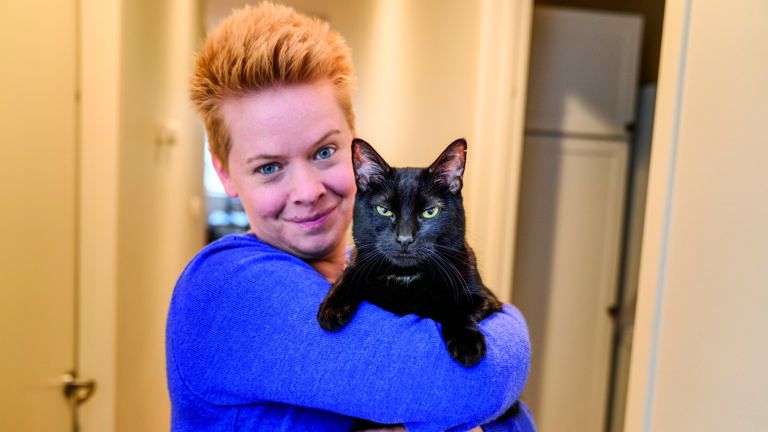No one really knows why cats purr. Some people say it’s a sign of happiness because so many cats purr when they’re curled up with their owners for a good snuggle or petting.
But cats also purr when they are feeling stressed (perhaps at the vet) and even when they’re injured, which leads many believe purring is actually a way for cats to heal themselves. In fact, animal scientists have discovered that the measurable Hertz of a cat’s purr is between 25 and 150. That is exactly (coincidentally or not) the same sound range researchers have discovered can stimulate bone growth and healing. Perhaps this is why cats seem to have 9 lives. They’re their own best healers!

I never heard her purr until my wife was about 6 months pregnant with our twin son and daughter. Long story short, we rushed to the hospital one night because we thought my wife was miscarrying one or both of the babies. Everything, thankfully, was fine, but when we came home and got back into bed, Lucy—who has never taken to women—curled up right beside my wife and started purring…loudly.
I was amazed. The only thing I could figure was that Lucy sensed that we had had a scare, and that it had to do with the babies, and some latent (she’s spayed) maternal instinct kicked in. She just knew my wife and the babies in her belly (literally) needed some good vibrations.
—Justin Marks
Photo caption: Lucy watching over 10-day-old Louisa and Henry





